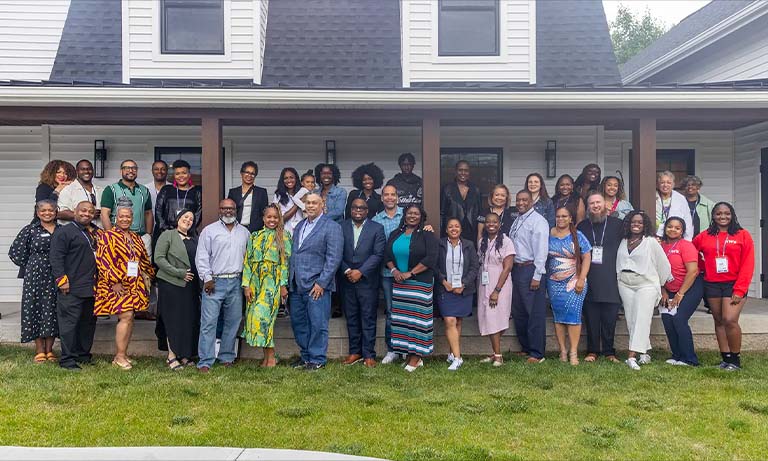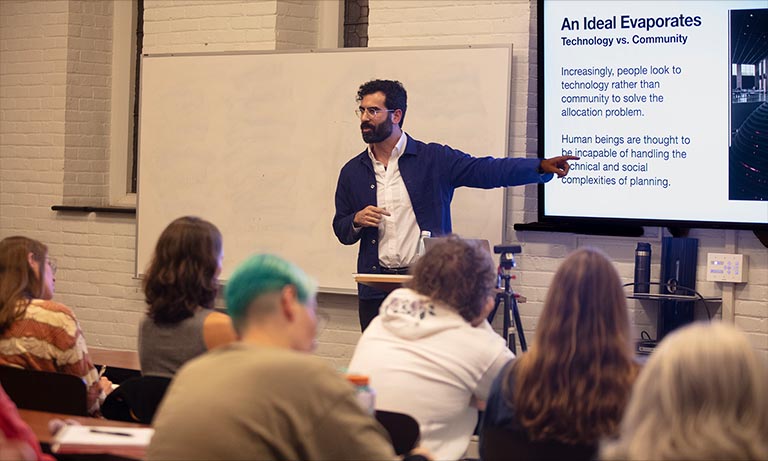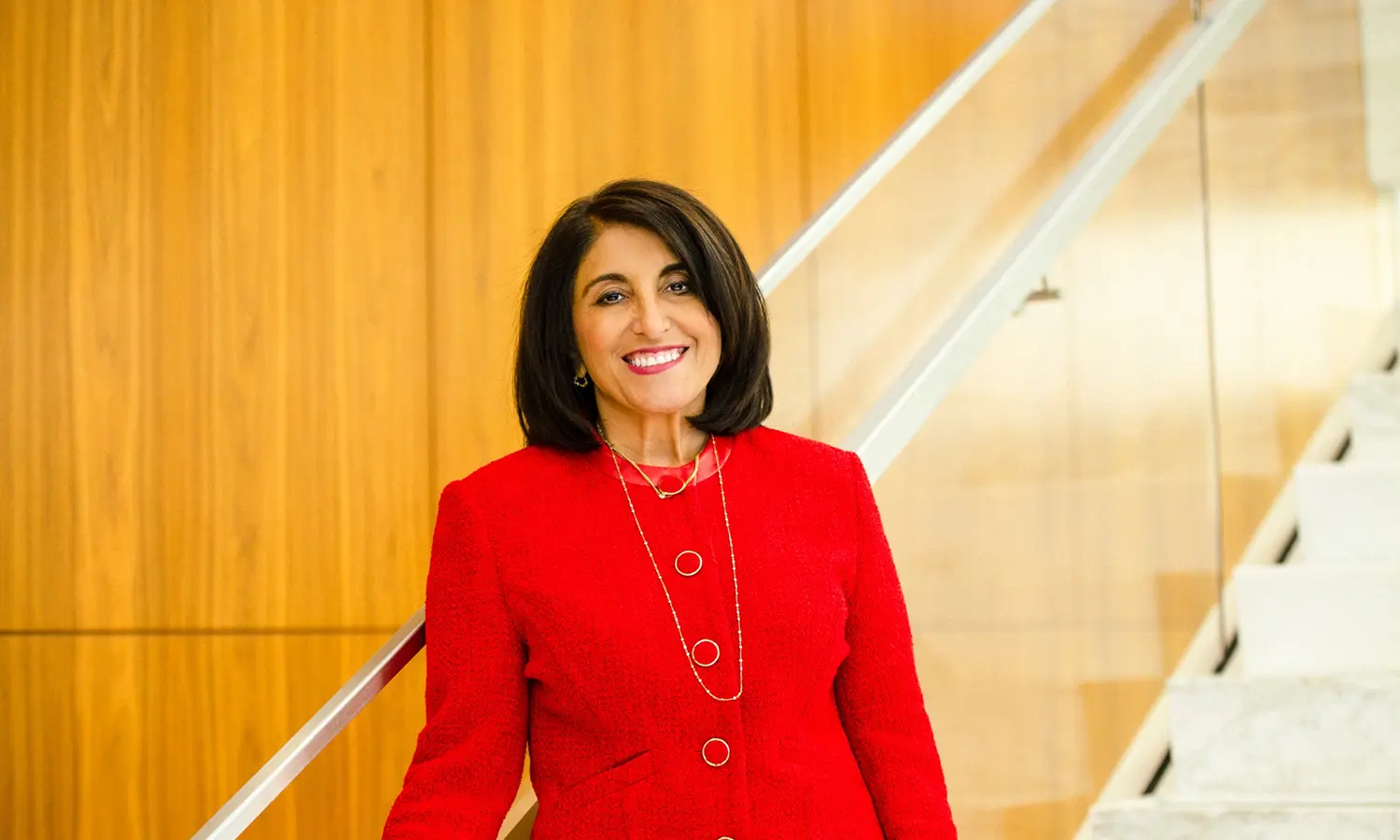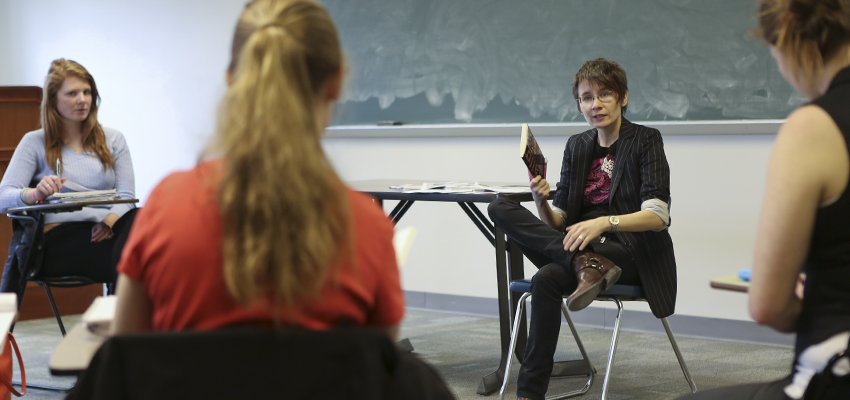
HWS News
20 December 2019 Announcing the Fisher Center Spring Series
The Fisher Center for the Study of Gender and Justice continues its 2019-20 exploration of the theme, “The Drowned World: Water, Politics, and the Future,” with speakers and events throughout the spring semester.
Aligning with the campus-wide Year of Water theme, “The Drowned World” spotlights water as a conduit for connection, the undercurrent of life. From struggles over social justice movements from Flint, Standing Rock and Seneca Lake to Palestine, India and New Zealand, this year’s series examines the role water plays as a resource in the struggles for a better world, addressing questions such as: How does one recover submerged histories and afterlives—of slave trade, piracy, lawlessness and statelessness? How is the sea as a ground of colonial violence implicated in the liberatory imaginings of the oceanic?
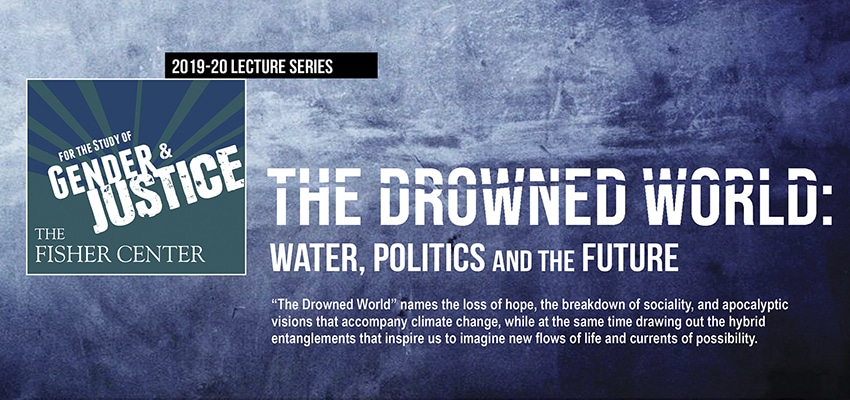
Professor of Political Science Jodi Dean, director of the Fisher Center, says “The Drowned World” names the loss of hope, the breakdown of sociality and apocalyptic visions that accompany climate change, while at the same time drawing out the hybrid entanglements that inspire us to imagine new flows of life and currents of possibility.
The series resumes on Wednesday, Jan. 29, with a book launch for Associate Professor of English Alla Ivanchikova’s Imagining Afghanistan: Global Fiction and Film of the 9/11 Wars, (Ivanchikova is pictured above) which offers “readers a sophisticated portrait of Afghanistan as a rich multispecies habitat affected in dramatic ways by decades of war but not annihilated” (Purdue University Press). The book explores how Afghanistan has been imagined — and what those imaginings have come to signify — in global literature and film produced after the 9/11 attacks and the subsequent U.S.-led invasion. The launch will include reflections from HWS faculty including Associate Professor of Religious Studies Etin Anwar, Professor of Political Science Kevin Dunn, Assistant Professor of Women’s Studies Michelle Martin-Baron and Visiting Assistant Professor of Environmental Studies Robinson Murphy.
On Wednesday, Feb. 12, the Fisher Center welcomes Tiffany Lethabo King, assistant professor of African-American studies and women’s, gender and sexuality studies at Georgia State University. King will discuss her new book, The Black Shoals: Offshore Formations of Black and Native Studies, which the publisher describes, “uses the shoal — an offshore geologic formation that is neither land nor sea — as metaphor, mode of critique, and methodology to theorize the encounter between Black studies and Native studies…In outlining the convergences and disjunctions between Black and Native thought and aesthetics, King identifies the potential to create new epistemologies, lines of critical inquiry, and creative practices.”
On Wednesday, Feb. 26, two Fisher Center Faculty Research Fellows will kick-off the fellows’ annual presentations. Visiting Assistant Professor of Environmental Studies Robinson Murphy, whose Fisher Center project uses psychoanalysis to look at Australian climate fiction, will deliver a talk titled “Climate Change and the Death Drive.” The Trias Postgraduate Teaching Fellow in Creative Writing Taylor Brorby, who began work on a book about the Missouri River as a Fisher Center fellow, will present a talk titled “The Fracking of My Body.”
Helen M. Rozwadowski, a professor of history and founder of the University of Connecticut’s Maritime Studies program, will present a lecture, “How Ocean History Can Help Save Our Planet,” on Wednesday, March 4. Author of Vast Expanses: A History of the Oceans and Fathoming the Ocean: The Discovery and Exploration of the Deep Sea (2005), Rozwadowski will discuss how the long-standing and persistent Western view of the ocean as a timeless place, apart from humanity, contributes to oceanic degradation.
Fisher Center Faculty Research Fellow presentations continue on Wednesday, March 25 with Visiting Assistant Professor of Political Science Ricky Price, who will present “Invasive Cultures in the Finger Lakes: From the Sullivan Campaign to Harmful Algae Blooms.” Susan Cushman ’98 — the director of introductory biology laboratories in the HWS Department of Biology, a research scientist at the Colleges’ Finger Lakes Institute and president of the New York chapter of the American Fisheries Society — will also present her work as a faculty research fellow, which has focused on invasive species, the bioaccumulation and magnification of mercury through aquatic food webs in the Finger Lakes region, and community education around these issues.
The spring series concludes on Wednesday, April 8, with presentations by faculty fellows Tara Curtin, associate professor of geoscience, and Lisa Avron, the Fisher Center Pre-doctoral Fellow. Curtin’s project, Distant Memories of A Drowned World, has focused on testing whether the processes that drive the terrestrialization of lakes are gradual and climate-independent. She will use the geologic record preserved in modern bogs to test this hypothesis and decipher how, when and why the transition from an aquatic world to a terrestrial world took place in the nearby Ontario Lowlands. Avron’s work explores the human dimensions of climate change predictions for her hometown in South Florida, with particular emphasis on issues of systemic inequalities, anti-racism and our contemporary political-economic moment.
Endowed with a $1 million gift from Emily and the late Richard Fisher, whose son Alexander graduated from Hobart College in 1993, the Fisher Center was inaugurated in October 1998 with an event titled “Engendering the Future: Educating Women, Educating Men, Educating Women and Men,” featuring noted experts Carol Gilligan, renowned feminist, psychologist and professor; and Michael Kimmel, author and editor of many influential books on the topic of masculinity.
Since then, the Fisher Center has hosted nearly a dozen events each year, bringing together faculty, students and experts in gender-related fields in the arts, humanities and social and natural sciences to foster mutual understanding and social justice in contemporary society. Reflecting the intersection of the Colleges’ coordinate history and trends in the study of gender throughout academe, the Fisher Center builds upon the Colleges’ long-held commitment to interdisciplinary liberal arts education.

